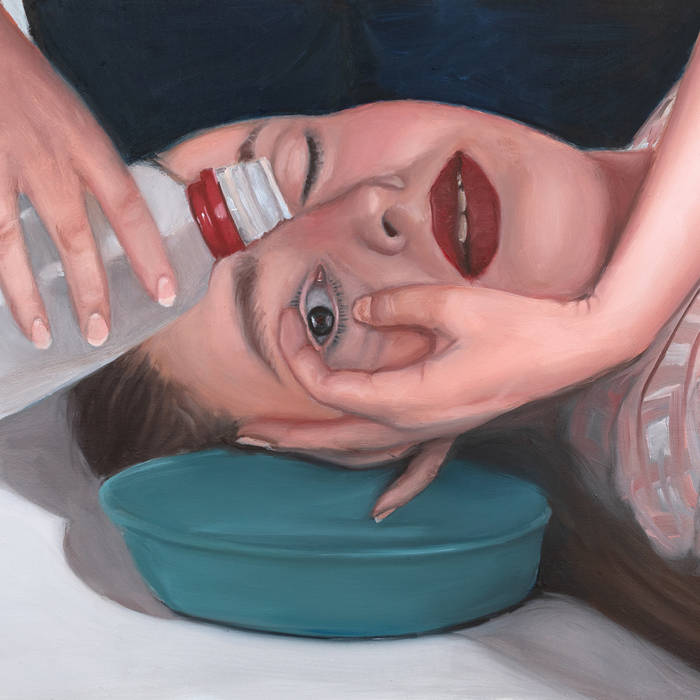Blab School – Blab School | Album Review
/Fort Lowell Records
When you grow up in the orbit of an older brother, especially an older brother who could be considered “cool,” there is a sort of unapproachable quality to the bands he listens to… Or at least I think that’s how it is; I don't actually have any older siblings, cool or otherwise.
This is a long walk, but go with me.
I was twelve years old in the year 2000, so all the cool older brothers in my orbit were into bands like AFI, Deftones, Green Day, Bad Religion, Nirvana, Tool, Nine Inch Nails, etc., etc. Being one step removed from these bands may have actually made them seem even more unapproachable and cooler to me. There was something about the scorching disaffection and pseudo-masculine rage of this era of music that I found dangerously alluring at the time. It felt like I was getting into these bands at my own risk, which was part of the appeal.
Blab School’s self-titled debut album reminds me of this era of rock music, not necessarily in tone and sound, but in pure, intimidating coolness.
So, how does one talk about a band whose defining characteristic is that they sound cool? They say comparison is the thief of joy, but this is a band that wears its influences on its sleeve. In addition to my projecting the likes of Deftones, AFI, and Tool onto Blab School, it’s easy to hear the bands they’ve been openly inspired by. In their bio on the Fort Lowell Records website, they namecheck the Wipers, Talking Heads, Joy Division, and Killing Joke as their sonic and philosophical progenitors. More contemporaneously, it wouldn’t be out of the question to see them sharing a bill with bands like Flasher or Protomartyr. This is a record that is steeped in nostalgia, but you’re going to have to adjust your idea of whose past lives we are talking about when we use the word “nostalgia,” this isn’t The Strokes or The Black Keys.
Blab School doesn’t have a narrative arc; that’s not the kind of band they are. In fact, the record is a pretty lean affair, clocking in at just over in just over twenty minutes. Blab School is not trying to tell a story with this record, but that is not to say that they aren’t trying to convey a feeling, and that feeling is chilly disaffection. This fire-and-ice combination of unattainable coolness and simmering rage puts them in a lineage with every band they have likened to by both me and the band themselves. It’s also a proven method for creating compelling music.
This can be heard from the jump with the first two tracks: “Small Simple Ways” and "Scrolls." The former sounds like it would fit beautifully alongside The Smashing Pumpkins on the Batman & Robin soundtrack, and I mean that in the best way possible. The latter is a particular favorite of the band, as it is the first song they wrote post-lockdown, which seems appropriate for a song about doomscrolling (“can’t seem to stop, I’m clicking on buttons, just staring at nothing, back to the top… scroll down, scroll down”). This feeling of dissatisfaction with modern society is on display throughout the record, from “Quit Yr Job” (particularly poignant to me as I write this article while on the clock at a job I’m getting laid off from at the end of the month), to “Never Enough” (we all hate capitalism in this house), to the closing track, “(Don’t Forget to) Give Up” (try the refreshing taste of nihilism today).
But one of the most fascinating tracks on the record is “I Hate the Summer.” On this penultimate track, the band sings, “I hate the summer, I pray for rain. I hate the sunlight, mimosas, and champagne. I hate the beach and all the sand it brings. I hate the blue skies; I hate most hot-weather things.” They’ve got that summertime sadness! Now I’m from Ohio and Blab School is from North Carolina, so we experience very different summers, but I have always found folks that detest the sun and revelry of summertime a little… dorky? But you see, that’s what makes this song so important! In the context of the record, it might be the most important song of all. I’ve gone on and on about how impenetrably cool this band is for this entire article, and we get to the second-to-last song on the album, and it’s just someone whinging about how they’re too hot? It’s brilliant! It makes them human! It invites other dorky folks who get cranky when the weather gets above 72° to be like, “Yeah! They get it!” before bringing it back around to the realm of the unfathomable and the unflappable to wrap things up with “(Don’t Forget to) Give Up.”
Ultimately, there’s something to be said here about the anachronistic idea of “coolness.” What does it even mean to be “cool” in 2024 when the internet has rendered each and every one of us “cringe”? That may be overstating it, but at the very least, social media has revealed that most of us are relatively ordinary in our day-to-day lives... or maybe it’s just leveled the playing field. You can see pictures of Blab School all together as a band on their Instagram, and they look very normal despite the fact that they have made a profoundly cool record. They just look like me and my friends, and I appreciate them more for it. Not to put too fine a point on it, but you can see that as a testament to everyone’s humanity. Just as your friends’ cool older brothers eventually become regular accountants, bitcoin miners, and managers at Chipotle, cool rock musicians are regular people, too. The coolness is part of the performance.
Brad Walker is a writer, comedian, and storyteller from Columbus, Ohio. Find him on the World Wide Web: @bradurdaynightlive on Instagram and @bradurdaynightlive.bsky.social on Bluesky.












